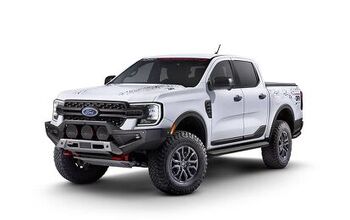EU Carmakers Want Return Of Cash For Clunkers

European carmakers are hurting. They hurt so much, they ask for government-prescribed painkillers. Renault’s COO Carlos Tavares wants a return of cash for clunkers. Credit rating agency Fitch warns there would be nasty after-effects.
“What I would like to see is support for the European and French auto markets,” Tavares told Reuters. Massive cash-for-clunkers programs were a shot in the arm of Europe’s carmakers in the critical years of 2008 and 2009. Tavares wants a re-run. Failing that, he would welcome “any other support measure that boosts demand.”
Europe’s carmakers are hurting to the tune of a nearly 9 percent drop of sales in the first five months of 2012. Some companies hurt more than others. Tavares’ Renault group is in the pangs of a 13 percent drop. Cross-town rival and GM alliance partner PSA suffers from a withdrawal of 19.5 percent of sales through May. Further south, Fiat is looking at a 12.6 percent drop.
Fiat’s Marchionne had lobbied for government support for a painless elimination of overcapacity. This plan has been shot down by an elsewhere occupied Brussels. EU bureaucrats could argue that there was no consensus: German carmakers Volkswagen, BMW and Daimler were openly against the communal slim-fest, and privately argued that survival of the fittest would be a better therapy.
While there most likely will be little hostility against a remake of the Abwrackprämie (as cash for clunkers was known in Germany) from Germany’s auto giants, opposition comes from a surprising camp: Fitch, the rating agency that normally assesses the likelihood of default. In a statement, Fitch says:
“Scrappage schemes give buyers a discount on a new car when they scrap an old one, having an immediate positive effect on sales. However, these schemes have little to no effect on creating new sales. Instead, they encourage buyers to bring forward purchases they would have made later, creating a sudden drop in sales, revenue and profitability when the incentives stop.
In addition, these fixed incentives distort the market by favouring sales of cheaper, lower-margin cars as customers typically seek to maximise the effect of the subsidy.”
The last statement is true. Renault’s Logan was amongst Germany’s best-selling cars during the Abwrackprämie. However, I did not hear anybody complain about sales of lower margin cars.
The first statement is patent nonsense. Nearly all Abwrackprämie sales were new sales, due to the simple fact that one had to retire a car 9 years or older. Owners of these cars usually never buy new, they buy used. Dealers complained (they always complain) that their showrooms were mobbed by customers they had never seen before and likely would never see again. Powered by the Abwrackprämie, German new car sales were up 23 percent in 2009, a year when U.S. car sales plummeted by 21 percent. Germans usually buy 3 million new cars per year. In 2009, it was 3.8 million cars, nearly all incremental sales. In 2010, with cash for clunkers over, German car sales were back to 2.9 million.

Bertel Schmitt comes back to journalism after taking a 35 year break in advertising and marketing. He ran and owned advertising agencies in Duesseldorf, Germany, and New York City. Volkswagen A.G. was Bertel's most important corporate account. Schmitt's advertising and marketing career touched many corners of the industry with a special focus on automotive products and services. Since 2004, he lives in Japan and China with his wife <a href="http://www.tomokoandbertel.com"> Tomoko </a>. Bertel Schmitt is a founding board member of the <a href="http://www.offshoresuperseries.com"> Offshore Super Series </a>, an American offshore powerboat racing organization. He is co-owner of the racing team Typhoon.
More by Bertel Schmitt
Latest Car Reviews
Read moreLatest Product Reviews
Read moreRecent Comments
- Jalop1991 does the odometer represent itself in an analog fashion? Will the numbers roll slowly and stop wherever, or do they just blink to the next number like any old boring modern car?
- MaintenanceCosts E34 535i may be, for my money, the most desirable BMW ever built. (It's either it or the E34 M5.) Skeptical of these mods but they might be worth undoing.
- Arthur Dailey What a load of cow patties from fat cat politicians, swilling at the trough of their rich backers. Business is all for `free markets` when it benefits them. But are very quick to hold their hands out for government tax credits, tax breaks or government contracts. And business executives are unwilling to limit their power over their workers. Business executives are trained to `divide and conquer` by pitting workers against each other for raises or promotions. As for the fat cat politicians what about legislating a living wage, so workers don't have to worry about holding down multiple jobs or begging for raises? And what about actually criminally charging those who hire people who are not legally illegible to work? Remember that it is business interests who regularly lobby for greater immigration. If you are a good and fair employer, your workers will never feel the need to speak to a union. And if you are not a good employer, then hopefully 'you get the union that you deserve'.
- 28-Cars-Later Finally, something possibly maybe worth buying.
- EBFlex The simple fact is very small and cheap ICE vehicles have a range thats longer than all EVs. That is the bar that needs met. And EVs cannot meet that.Of course range matters. But that's one element of many that make EVs completely ineffective at replacing ICE vehicles.






























Comments
Join the conversation
Would the European carmakers cutting their prices boost demand?
Union trash always want some free tax money. Stay away from union products.